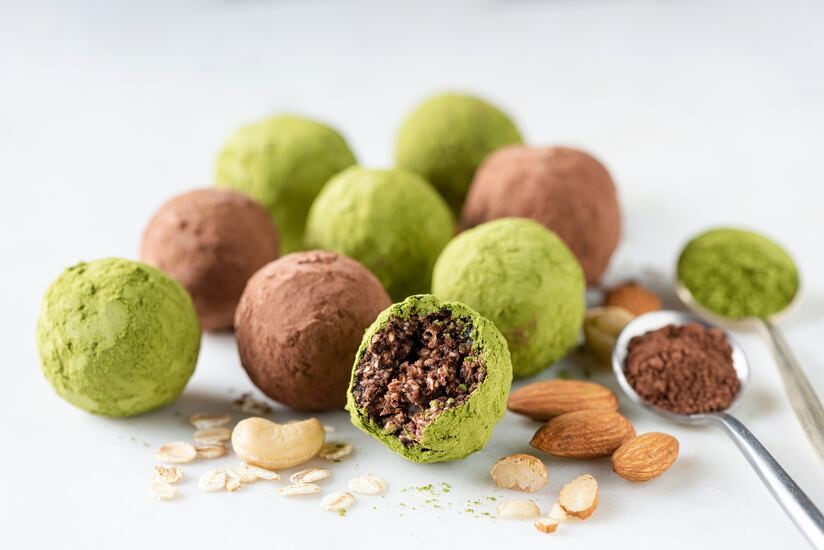As consumers seek indulgence with a conscience, vegan and plant-based chocolates are emerging as the sweet spot of innovation in the confectionery world.
Chocolate is undergoing a quiet revolution. No longer just a dairy-rich indulgence, it’s rapidly transforming into a plant-based delight—without sacrificing the taste, texture, or experience consumers love. According to Cargill’s TrendTracker 2024 report, one in three Europeans now look for healthier alternatives to their favourite treats, and nearly three-quarters (73%) prefer products that align with sustainable values. As a result, the plant-based chocolate category has exploded, with new launches up by 25% globally.
The vegan chocolate market, valued at $1.3 billion in 2023, is projected to more than triple to $3.77 billion by 2032 (Market Research Future). In Europe alone, the segment is growing at a CAGR of 14.8%, on track to reach $453.8 million by 2028 (Fortune Business Insights).

At the heart of this transformation is innovation—both in ingredients and in consumer mindset. Chef Peter Remmelzwaal, gourmet chef at Cargill’s House of Chocolate in Belgium, offers insight into the key trends driving this category forward:
1. Conscious Consumption with Full Sensory Satisfaction
Consumers are no longer willing to compromise on taste just to make a plant-based choice. Remmelzwaal points to the rise of the “flexitarian” lifestyle—people reducing animal product intake for health and environmental reasons—as a major driver.
“Texture and mouthfeel are crucial,” he says. “Chocolate remains a guilty pleasure. So even vegan versions must stack up to traditional ones in taste and indulgence.”
This means plant-based chocolate must deliver that familiar snap, smooth melt, and rich mouth-coating feel of conventional milk chocolate.
2. Ingredient Innovation Reshaping Chocolate’s DNA
The foundation of great chocolate lies in its formulation—and here, science is stepping up. From rice flour and rice syrup to sunflower kernel paste, new ingredients are being used to replicate the creamy, melt-in-the-mouth feel of dairy.
“You want that fat sensation, that smoothness that lingers,” Remmelzwaal explains. “Today’s innovations are creating a richer and more authentic experience than ever before.”
These alternatives are not only dairy-free but also help shorten ingredient lists and improve nutritional profiles—making them appealing to label-conscious consumers.

3. A Smoother Bite: Eliminating the Grit
Early iterations of vegan chocolate were plagued by a chalky or gritty texture. But that’s now history. Enhanced processing techniques and precision blending have led to a smoother, more refined bite.
“There are always new solutions entering the market,” Remmelzwaal says. “Each innovation is a small but vital step toward parity with dairy-based chocolate.”
This progress means consumers no longer need to lower their expectations when choosing a vegan version.
4. Functionality Meets Flavor
Today’s plant-based chocolates do more than just mimic the original—they offer added benefits. Whether it’s extra protein, dietary fiber, or added vitamins, functionality is becoming a key part of the product appeal.
“There’s a growing desire for enrichment alongside indulgence,” Remmelzwaal notes. “And consumers in the plant-based space are especially attentive to cleaner, simpler labels.”
This dual focus—pleasure plus purpose—is reshaping what premium vegan chocolate can offer.

5. Strategic Line Extensions for Brands
Despite its rapid growth, plant-based chocolate remains a relatively small niche. However, forward-thinking brands are seizing the opportunity to diversify their product lines.
“Adding a vegan chocolate range allows manufacturers to serve both traditional and health-conscious consumers,” Remmelzwaal says. “It’s not just about capturing a trend—it’s about expanding your market footprint.”
With consumer demand shifting and innovation accelerating, offering a plant-based alternative is no longer optional—it’s a strategic advantage.
The rise of vegan chocolate is not just about replacing dairy—it’s about redefining indulgence for the modern age. Driven by conscious consumers, cutting-edge ingredients, and a quest for sensory satisfaction, plant-based chocolate is poised to reshape the future of the confectionery aisle. As Remmelzwaal puts it: “It’s all about giving people that same guilty pleasure—just made better.”


